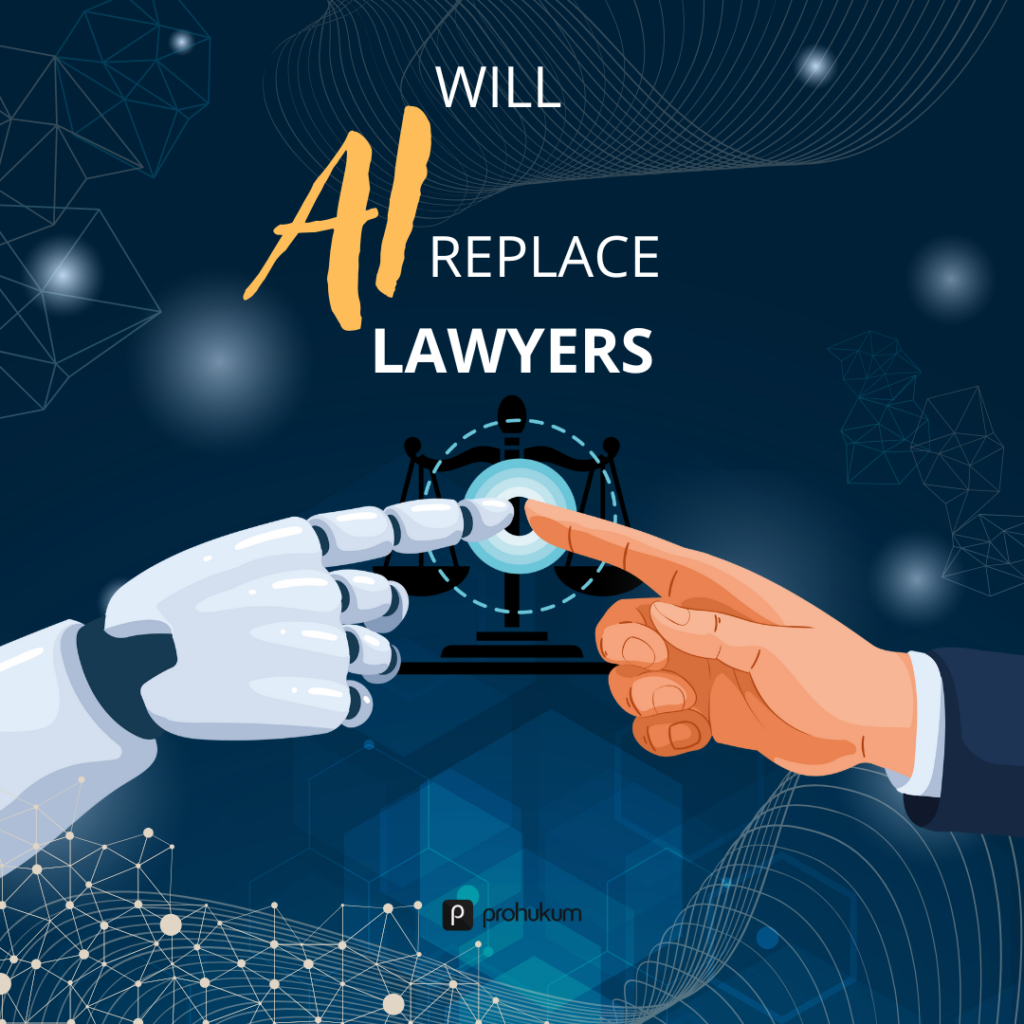Will AI replace lawyers? Advancements in artificial intelligence (AI) have transformed various industries, including the legal sector. With technologies like machine learning, document automation, and legal chatbots, a major question arises: will AI replace lawyers in the future? This article explores how AI is affecting the legal profession, its benefits and challenges, and the possible future for legal practitioners.

AI in the Legal Industry: Trends and Implementation
Artificial intelligence has been implemented in various aspects of legal services, from document automation to legal data analysis. In the book The Future of the Professions by Richard Susskind and Daniel Susskind, it is stated that the legal profession will undergo significant transformation as technology becomes more sophisticated.
Some examples of AI applications in law include:
Automated Legal Documentation: AI can assist in drafting contracts and standard legal documents, saving time and reducing human errors.
Case Analysis and Outcome Prediction: AI can analyze thousands of past cases to predict the outcome of specific trials.
Chatbots and Virtual Assistants: Many law firms are beginning to use AI-based chatbots to answer basic legal inquiries from clients.
E-Discovery: AI can filter and analyze vast amounts of documents to find relevant information for legal cases.
Benefits of AI in the Legal Profession
Efficiency and Speed
AI can automate time-consuming administrative tasks, allowing lawyers to focus on the strategic aspects of their work. In Artificial Intelligence and Legal Analytics by Kevin D. Ashley, it is explained how AI can enhance decision-making efficiency in law.
Accuracy and Consistency
With algorithms trained on legal data, AI can minimize human errors and improve the accuracy of legal analysis.
Accessibility to Legal Services
AI technology enables more people to access basic legal information without incurring high costs for lawyer consultations.
Reduced Operational Costs
Law firms can cut labor costs and increase productivity by adopting AI-based technology.
Challenges and Limitations of AI in Law
Despite its many benefits, AI in law also presents several challenges. For instance, issues related to context understanding, ethics, and data security remain significant concerns.
- Lack of Context Understanding and Empathy
AI can analyze law based on data. However, it lacks a deep understanding of social context and human emotions, which are particularly important factors in legal cases. As a result, AI may struggle to interpret nuances that require human judgment and empathy.
- Ethics and Compliance
The use of AI in law raises ethical concerns, such as ensuring that AI-driven decisions are unbiased and fair.
- Data Security and Privacy
Mark A. Lemley, in his book Cybersecurity and Legal Ethics, emphasizes that maintaining the confidentiality of sensitive legal information is crucial when using AI. Furthermore, as AI becomes more integrated into legal practices, ensuring data security and privacy will be more important than ever.
Future Outlook: AI and Lawyers Will Collaborate, Not Compete
While AI can replace some routine tasks performed by lawyers, it is important to note that the role of lawyers remains essential for legal matters that require deep analysis, negotiation, and human interaction. In other words, AI will not completely replace lawyers but will significantly transform how they work.
Looking ahead, lawyers who adapt to technology will gain a competitive advantage in the legal industry. Moreover, those who master both technical and legal skills will play a more strategic role in handling complex cases that AI cannot fully automate.
Conclusion
Artificial intelligence is bringing a major transformation to the legal industry by significantly improving efficiency and accessibility to legal services. Nevertheless, AI cannot fully replace lawyers due to its limitations in understanding context, empathy, and ethical aspects of law. As a result, the future of the legal profession will involve close collaboration between lawyers and AI, where technology helps accelerate legal processes, while at the same time, lawyers provide strategic insights and in-depth analysis. Therefore, legal professionals must adapt to technological advancements in order to remain relevant in the digital era.
